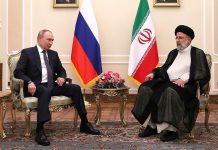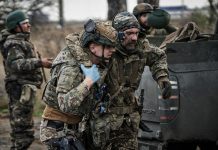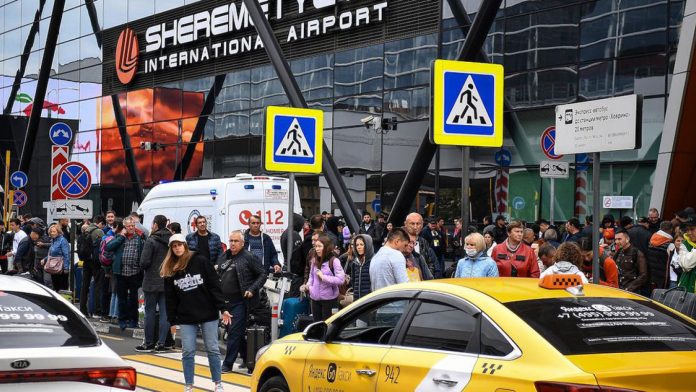Russian dictator Vladimir Putin’s September 21st call for a ‘partial mobilization’ has triggered a second wave of Russian outmigration in the seven months since Russia’s invasion of Ukraine began. An estimated 700,000 Russians are said to have left Russia in September alone. These ‘refuseniks’ will join a previous wave of émigrés who made for neighboring post-soviet republics like Georgia and Armenia back in March either out of disagreement with the war, or to escape sanctions.
However, unlike their compatriots from the first wave, mostly well-to-do urbanites, techies and creative professionals, whose relocations were often facilitated by their companies, or even host government’s like Armenia’s Ministry of Economy, this group consists mostly of young men of military age, mostly from impoverished peripheral regions of Russia, many of whom packaged up their meager belongings and made their way for any country that could take them in before their country’s exits would shutter, as some feared, permanently.
Armenia, one of few countries in the former soviet space that isn’t outright hostile to Russia or Russian people, made a natural choice of destination for many of these young draft dodgers. Russians don’t even require a passport to enter the country (just state ID) on one of at least two dozen flights a day, where they can stay up to 180 days without a visa, and have facilitated access to working permits due to the country’s membership in the Eurasian Customs Union. With the EU now moving to suspend visa facilitation for Russian citizens, with certain members, like the Baltic countries, outright blocking entry to Russian passport holders, some 80,000 Russians have chosen to make Armenia home.
And for many of those who spent most, if not all, of their life savings purchasing heavily price-gouged tickets (some paying up to $5000 for the 3 hour Moscow-Yerevan flight which usually costs less than $300), or making the costly trek over land, finding jobs is increasingly becoming an urgent priority. While Armenia’s robust economic growth over the past half-decade has created a welcoming and competitive job market for many highly educated Russians, particularly in the high tech sector, the same cannot be said for lower skilled refuseniks, for whom Armenia is the end of the line.
Russians have already been spotted driving taxis, bussing at restaurants, or other gig-economy jobs, sometimes competing with local Armenians for a limited number of jobs, many of whom have already felt the effect of this new wave of migrants in the form of eviction due to rental price increase, and inflation, adding to the simmering frustration the country is feeling over the knock-on effects of Russia’s war on Ukraine. Additionally, the more lax social norms commonly associated with Russians may have also triggered several minor incidents of moral panic in this small, predominantly christian country.
Still, their presence has mostly been welcomed in Armenia, where hospitality is a highly praised and ancient value. Members of Russia’s ‘creative class’ for their part, have already had their hand in shaping Yerevan’s nightlife and restaurant scenes, organizing raves, avantgarde art festivals, and opening third-wave coffee shops throughout the city. Others have taken to learning Armenian, and applying for permanent residency visas in order to better integrate in their adopted country. Still, the sudden arrival of so many political refugees in a small country of 3 million, still reeling from the effects of the global COVID-19 pandemic, and the ever-present threat of invasion from the neighboring dictatorship of Azerbaijan has put an undeniable strain on the country’s ability absorb them all without outside assistance. Local Armenians have seen an increase in prices across the board and been outpriced from access to housing. While the government has been working to address the situation, it won’t be enough.
Armenia has a history of welcoming those fleeing persecution––including, on several occasions, Russians themselves. In Yerevan, it is understood that every young ‘refusenik’ who finds safety in Armenia, is one less soldier committing atrocities in occupied Ukraine. But Armenia and a few other former Soviet countries cannot do this alone – the world community also needs to step up and do its part.
- Raffi Elliott is a Canadian-Armenian journalist and political risk analyst based in Yerevan. He studies the intersection between technology and civil liberties, while occasionally commenting on political, socio-economic and urbanism issues in the Caucasus Region.
















